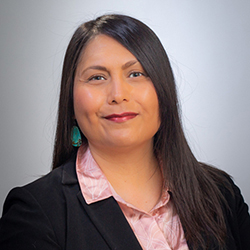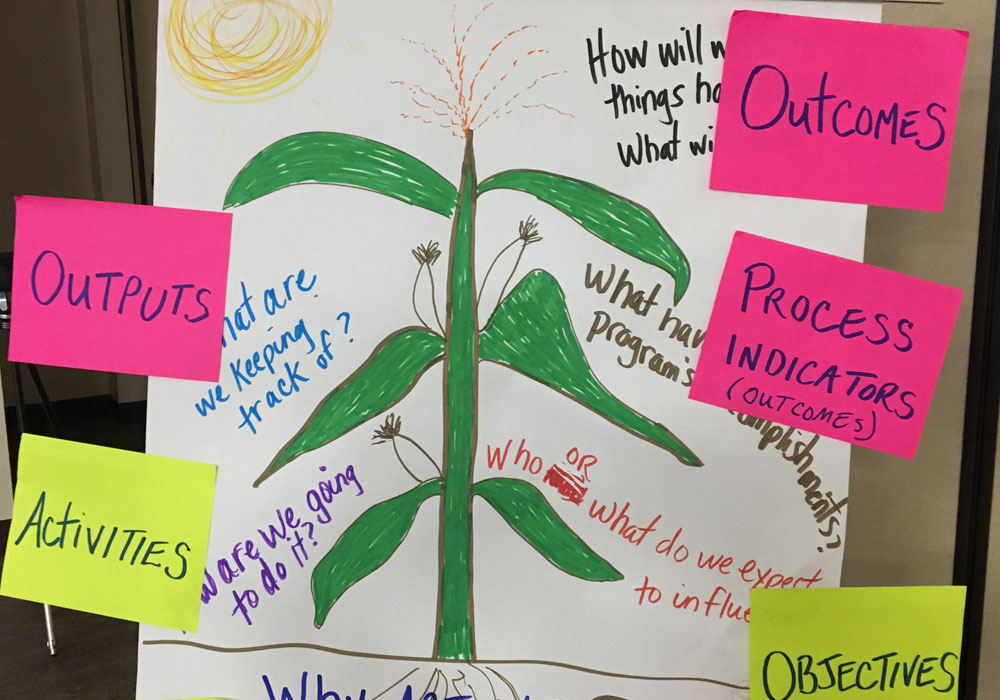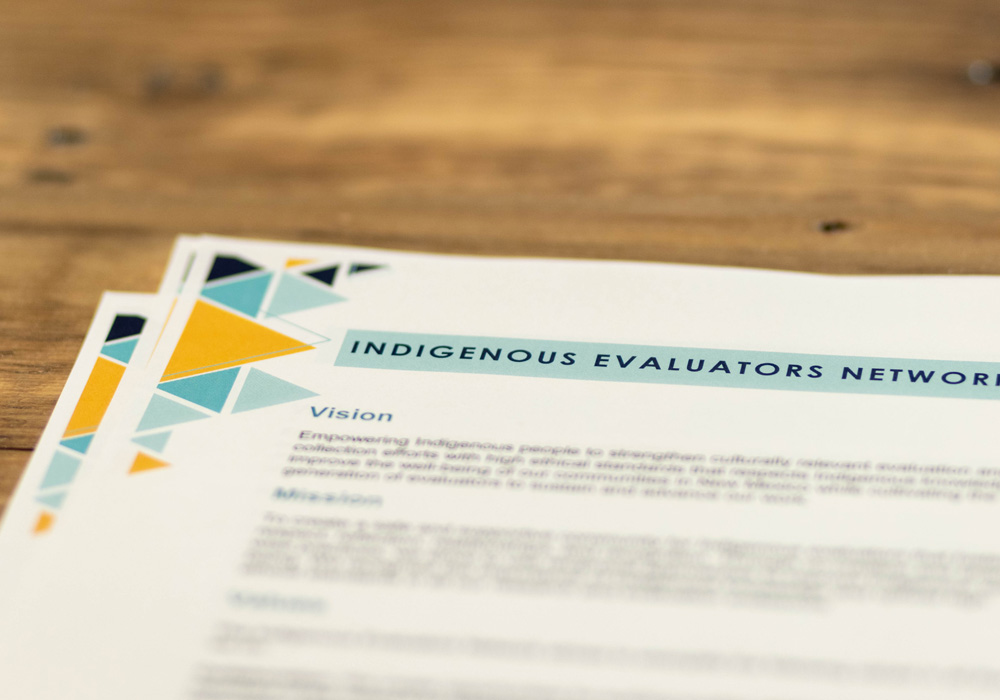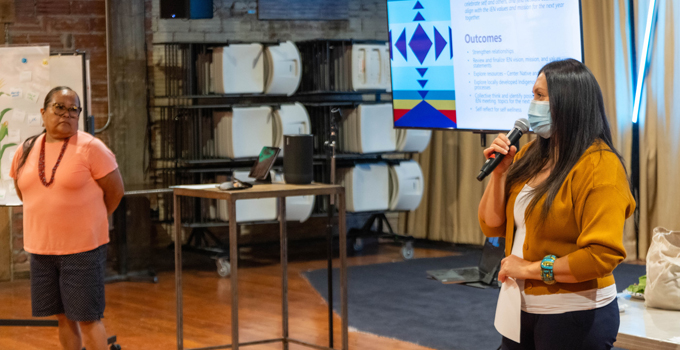New Mexico is home to many thriving Indigenous communities, yet due to outdated information and data, the real stories of those communities are not being told. A transformative initiative started by a team at The University of New Mexico wants to help change that by making sure the information about Indigenous communities is coming from the community itself.
The Tribal Data Champions (TDC) Fellowship is a yearlong training for Indigenous people in New Mexico interested in increasing their skills and knowledge in data, evaluation, and research. The TDC helps to build Indigenous data sovereignty, evaluation proficiency, data management skills, and utilize data to tell the Tribal story that evaluates Indigenous health and wellbeing.

We're not just teaching methods; we're also fostering a community-driven approach.
A main focus of the program is to strengthen participants’ skills and confidence in data to tell the full story of the beauty and richness of Indigenous peoples, not just how they are overcoming disparities. The TDC Fellowship wanted to change the narrative for those living in New Mexico, rather than perpetuate some negative stories that have existed for the last century. The TDC Fellowship emerged as a response to the diverse data needs within Tribal communities.

The creation of the TDC began when Rebecca Rae, MCPR, MWR, Research Lecturer III for the UNM College of Population Health (COPH), collaborated with a team of people at the university to co-create the TDC Fellowship in 2017. Beverly Gorman, MSW, COPH staff, and Eugene Tsinajinnie, MPH, consultant, joined the endeavor to uplift Tribal communities through data empowerment. Dr. Kamilla Venner, PhD, from the UNM Center on Alcohol, Substance use, And Addictions (CASAA) and Leola Paquin, PhD, of UNM Native American Studies, have also served as faculty and contributors to the TDC Fellowship.
Rae shared insights into the TDC Fellowship’s origins that were funded through a grant by the Kellogg Foundation. She explained that the journey began with a vision to provide a year-long immersive experience to cohorts with training and assistance to Tribal community members. Through tailored workshops and trainings, community members were equipped with essential skills, ranging from basic data analysis to comprehensive program evaluation centered in Indigenous methodologies.
At the core of the TDC Fellowship is a comprehensive, rigorous curriculum designed to guide participants through the entire evaluation process, from logic model development to data analysis using an Indigenous evaluation framework. "We're not just teaching methods; we're also fostering a community-driven approach," emphasized Rae. Monthly sessions serve as forums for dialogue and knowledge exchange, nurturing relationships essential for collective growth.
Central to the TDC Fellowship's philosophy is Indigenous data sovereignty, empowering communities to assert ownership over their data and narratives. "Data should remain sacred and under community discretion," explained Rae, highlighting the importance of preserving cultural integrity amidst external demands for interpreted data.
Reflecting on the TDC Fellowship's evolution, Rae expressed gratitude for the support received, including a recent partnership with the Conrad Hilton Foundation that provided a one-year grant to build out a network. She emphasized that building the TDC Fellowship is crucial for sustaining their collective efforts, highlighting the need for continued investment in community-driven initiatives. The TDC Fellowship is currently looking for its next partnership as funding ends in a couple of months.
The Indigenous Evaluators Network
 Photo Credit: Mateo Perez
Photo Credit: Mateo PerezThe TDC Fellowship has entered its fifth cohort recognizing the power of collective action and efforts are now underway to expand the impact of the TDC Fellowship. Such a spin-off started branching out in late 2022 and began to form as the Indigenous Evaluators Network - a group for like-minded individuals to share resources, insights, and experiences revolving around data and evaluation.
Where the TDC Fellowship provided training and community, the Indigenous Evaluators Network will put the training into action through ongoing engagement and collective learning. The network serves as place for members to build partnerships, share knowledge, and work together to address mutual interests and challenges. Roanhorse Consulting, LLC., and some of the Tribal Data Champion current and alumni members, began a core planning team that took months to solidly align values and ideas for what the new group would accomplish.
“Building this Network as a collective vision has required a lot of collaboration,” Rae expressed. Drawing on the expertise of TDC Fellowship alumni and community partners, the Indigenous Evaluators Network will lay the foundation for a community that champions Indigenous voices and methodologies.
From the beginning, the vision for the Indigenous Evaluators Network has involved collaboration and collective goals. With the expertise of TDC Fellowship alumni and the support of community partners, the Indigenous Evaluators Network's goal is to create a community that uplifts Indigenous voices and methodologies. The TDC Fellowship and this Indigenous Evaluators Network share the unwavering goals of expanding their reach and securing stable funding to support different initiatives. Through their collaborative efforts, the goal is to tell and celebrate the stories, resilience, strength, and lasting legacy of Indigenous communities within New Mexico.